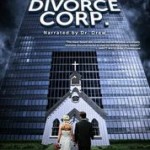That would be a challenge to incumbent Judge James Pierce, who sits in Long Beach. The report cited a judge “… who knows both Najera and Pierce, and who asked not to be named” as explaining that Najera “hates” the incumbent and “thinks he’s a terrible judge.” Najera, who was not available for comment for the report, is also connected to the high-profile Menendez brothers trail. She was on team that convicted the brothers of murdering their parents. That conviction came after an earlier trial ended with a hung jury.
Long Beach Facing High-Profile Judge Race
New Divorce Documentary Is ‘Takedown’ Of System
Reviews are pouring in for the new “Divorce Corp.” documentary by Joseph Sorge, which opens this month and paints a very dark picture of family law courts. While the film is national in scope, it focuses on California and its most interesting character is a private investigator in the Golden State. Accounts are of a “system” with little oversight, complete with conflicts of interest and judges beyond belief. It should be noted that the longtime television producer got the idea for the film from his own divorce.
Court Budget Hike Tied To Pension, Other Changes
‘City In Decline’ Report Skips Court Woes
L.A. Judge Eyed For District Appeals Court
Chief Justice, Budget Plans Sketched In Report
One of those end-of-year “people to watch” features is hardly the stuff of investigative journalism, but a piece in The Tribune newspaper in San Luis Obispo outlines at least part of the upcoming judicial budget battles. The feature on California Chief Justice Tani Cantil-Sakauye is mostly glowing, but is among the few to note that early budget drafts exclude court budget increases.
The story is also one of the few that notes a specific number that the chief justice will seek from the legislature, although it is an indirect reference: “With those priorities in mind, Cantil-Sakauye is making a serious push for increased funding in the next fiscal year: another $472 million, which is about how much has cumulatively been cut from the judiciary’s budget since 2008.”
U.S. Chief Justice Pleads For More Funding, Warns Of Constitutional Issues
Happy New Year!
The California Courts Monitor will resume regular posts on Monday, January 6th.
Cheers,
CCM staff

